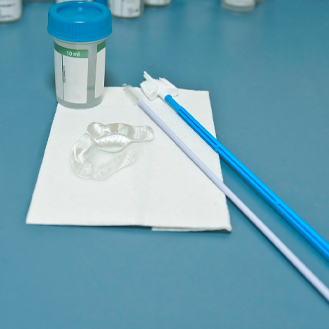
January 30, 2024
By Rim Saab, Drexel University College of Medicine
In the landscape of women's health, the Pap smear stands as a robust diagnostic tool, particularly vital in the prevention of cervical cancer. This article explores the complexities of Pap smears, highlighting their pivotal role in early detection and underscoring the nuanced influence of public policies in broadening accessibility to these screenings.
Decoding the Pap Smear
The Papanicolaou test, commonly known as the Pap smear, functions as a cytological examination designed to discern cellular abnormalities within the cervix. This method involves the systematic collection of cervical cells for microscopic scrutiny, enabling the identification of precancerous or abnormal cellular developments.
Averting Cervical Carcinogenesis
Cervical cancer, primarily triggered by persistent human papillomavirus (HPV) infection, stands among the most prevalent malignancies impacting women globally. The Pap smear operates as a cytological sentinel, possessing the unique ability to intercept the trajectory of cervical carcinogenesis by detecting and characterizing cellular anomalies at their incipient stages. Timely identification allows for intervention before the progression to invasive malignancy.
Public Policy: A Catalyst for Accessibility
While the Pap smear signifies a scientific triumph, its efficacy is maximized through the implementation of strategic public policies aimed at overcoming barriers to accessibility. Optimal screening requires not just the availability of health care resources but targeted initiatives to reach underprivileged demographics. Public policies play a pivotal role in dismantling socioeconomic impediments and ensuring the equitable distribution of this preventive health care modality.
In the Commonwealth of Pennsylvania, the commitment to enhancing cervical health has been underscored by a comprehensive set of public policies designed to ensure widespread access to Pap smears. The Pennsylvania Department of Health, in collaboration with various governmental and nongovernmental entities, has implemented targeted strategies to overcome barriers to screening, particularly among underserved populations.
One noteworthy initiative is the Pennsylvania Cervical Cancer Screening Program (PA-CCSP), a state-funded program specifically tailored to provide cervical cancer screenings for uninsured and underinsured women. This program functions as a linchpin in the public health infrastructure, offering cost-free Pap smears and, when necessary, facilitating subsequent diagnostic and treatment services. By alleviating financial constraints, PA-CCSP substantially contributes to democratizing access to preventive cervical health care.
Additionally, the Pennsylvania Department of Health has actively promoted community-based outreach programs aimed at raising awareness about the importance of cervical health screenings. These initiatives involve partnerships with local health care providers, community centers and educational institutions to disseminate information, organize health fairs, and offer on-site screenings. By bringing these services directly to communities, the state ensures that geographical and logistical barriers do not impede access to vital preventive care.
Legislation has also played a pivotal role in fortifying accessibility. The state has implemented policies mandating insurance coverage for cervical cancer screenings, encompassing Pap smears and HPV testing. This legislative foresight ensures that women with insurance coverage, a critical demographic, can undergo regular screenings without financial encumbrances, thereby reinforcing the preventive fabric of cervical health.
Furthermore, Pennsylvania has harnessed technological advancements to enhance accessibility. Telehealth policies have been expanded to include cervical health consultations and discussions, allowing women in remote or medically underserved areas to connect with health care professionals, receive guidance and access screening services without the need for extensive travel.
Operationalizing Public Policy
Effective public policy frameworks encompass multifaceted strategies, including comprehensive educational campaigns and the augmentation of affordable screening services. Government-sponsored initiatives such as the National Breast and Cervical Cancer Early Detection Program (NBCCEDP) epitomize the synergy between science and public policy, proactively extending screening services to economically disenfranchised and underinsured women. These interventions serve as instrumental mechanisms in eradicating financial and informational hurdles that impede access.
Beyond Screening: Immunization and Health Literacy
Holistic public policies extend beyond the confines of screening initiatives to encompass proactive vaccination against HPV and educational endeavors. Vaccination campaigns, integral components of primary prevention, contribute significantly to reducing the incidence of cervical cancer. Concurrently, educational programs function as empowerment tools, dispelling misinformation, fostering health literacy and promoting informed decision-making regarding cervical health.
The Pap smear stands as a significant scientific achievement, unraveling the intricacies of cervical health. Nevertheless, its impact is accentuated through judicious public policy that ensures that the benefits of this screening modality are universally accessible. As we navigate the terrain of women's health, let the Pap smear serve as a testament to the symbiosis between scientific advancement and conscientious public policy.
Sources/Resources: